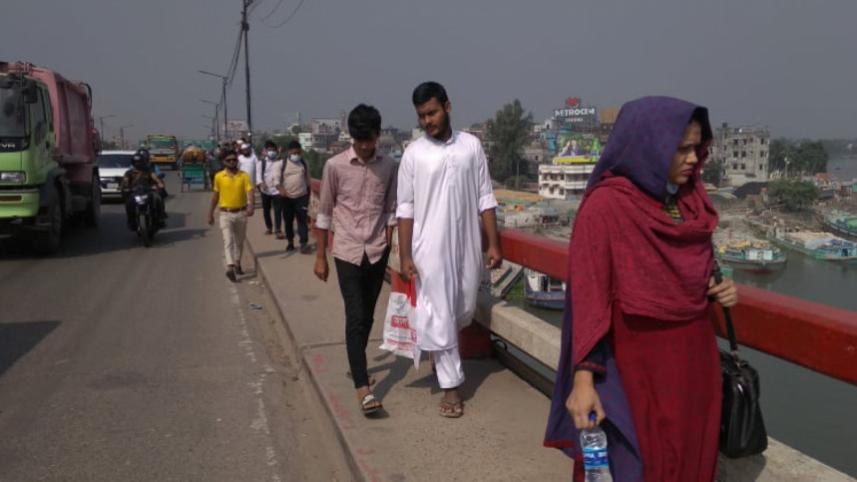Why must the public always bear the brunt?

The effects of the government's sudden decision to increase the price of diesel and kerosene by 23 percent have been immediate and reverberating. With transport workers on strike, buses were nowhere to be seen starting Friday and commuters had to resort to more expensive modes of transport. Some walked long distances to reach their destination and avoid the hefty costs of alternate transportation. Many were not even aware of the transport strike—reasonably so, given the abruptness of the situation—and missed interviews, exams (including admission tests to seven DU-affiliated colleges) and other pressing appointments.
Meanwhile, launch owners also submitted a proposal to the chairman of Bangladesh Inland Water Transport Authority on Friday to double their fare and began suspending their services this afternoon, citing the hike in fuel prices. It is inevitable that this price hike will also affect the prices of imported goods, slow down exports (or make them more expensive if companies have to opt for air shipment), and increase production costs of local goods overall.
We cannot imagine that the authorities could not have foreseen this outcome, not only based on past experiences but also on sheer common sense. Yet, sudden decisions such as this always seem to signal their disconnect with the experiences of the general public. To top this off, transport leaders, after meeting today with the home minister, decided to carry on with the strike until authorities decide on either raising fares or cutting fuel prices.
The government body tasked with fixing bus fares according to new fuel prices is set to meet tomorrow. If past incidents are anything to go by—for instance, the delay in implementing the Road Transport Act 2018 which would impose hefty fines on unfit vehicles—it is not impossible that the authorities will side with transport owners (many of whom are often linked to politically influential members of society) and give in to their demand of raising fares for commuters. It seems it is always the general public who must bear the burden of such abrupt government decisions, in the short-term and in the long-term.
We would urge the government to take into account the suffering of both businesses and members of the public when arriving at a decision that will end the transport strike. While we firmly believe there should have been more forethought exercised before imposing such a sudden hike in the price of something as essential as fuel, the authorities must do more to end this culture of random strikes by transport owners and workers that hold the country hostage and ultimately affect ordinary citizens the most. We also hope that this will act as a lesson learned when taking such decisions in the future.



 For all latest news, follow The Daily Star's Google News channel.
For all latest news, follow The Daily Star's Google News channel.
Comments